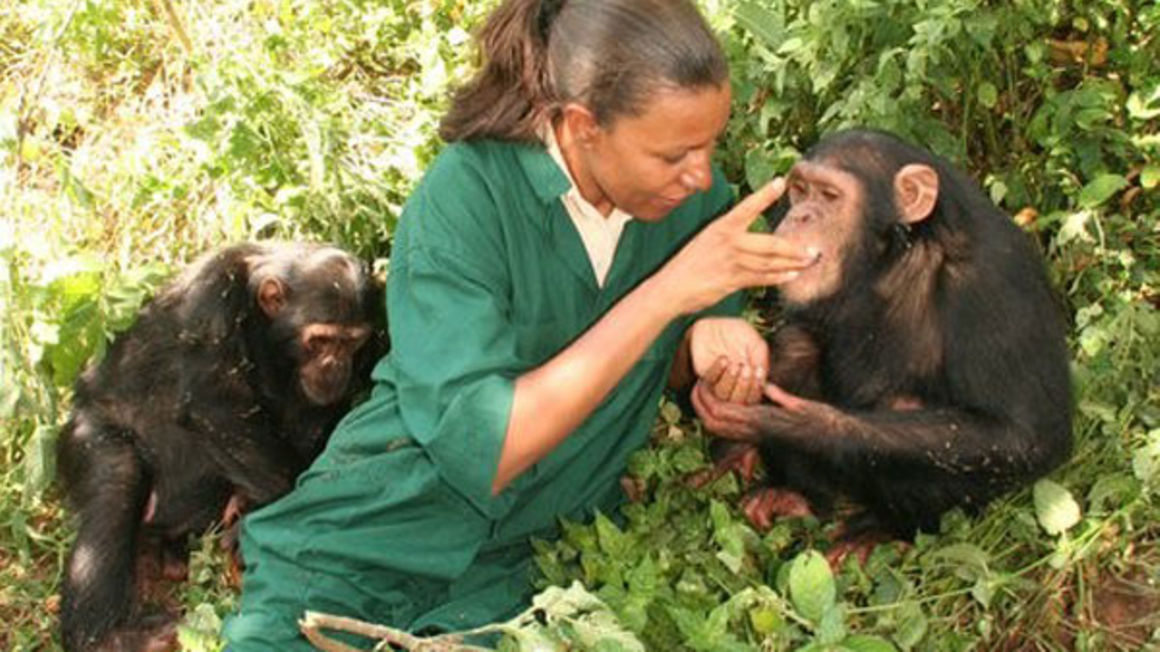
The chief executive officer of Uganda Tourism Board, Ms Lilly Ajarova, feeds a chimpanzee at Ngamba Chimpanzee Sanctuary located on Lake Victoria. COURTESY PHOTO
The executive director of Uganda Wildlife Education Centre (UWEC), Mr
James Musinguzi, has said chimpanzees are increasingly being attacked
as a result of human encroachment on wild animal habitats.
“We are
continuously seeing the rescue of Chimpanzees on the increase, averagely
we rescue two chimps every year from the hotspot districts like Hoima,
Kibale, Kasese and Masindi,” Mr Musinguzi said.
He added: “The more
we sit and continue receiving the chimpanzees, it becomes a challenge so
we must now tackle the area where chimpanzees are coming.”
Mr
Musinguzi made the remarks at the launch of a five-year Chimpanzee
Connect programme aimed at addressing human-wildlife conflict in
societies neighbouring chimpanzee habitats in Entebbe on Tuesday.
He
said there is need to construct more chimpanzee sanctuaries to cater
for the increasing number of those rescued from human attacks.
“At
UWEC, we have 22 chimpanzees and have hit the current capacity of the
area here. Ngamba Island chimpanzee sanctuary has 50 chimpanzees,
meaning they have exceeded their capacity. If more chimpanzees are
rescued as a result of human-wildlife conflict, we have no place to take
them,” he said.
Mr Musinguzi said the Chimpanzee Connect programme
will protect the primates from attacks through sensitising people in
hotspot districts about their importance and tourism promotion.
The
manager of Education and Information Department at UWEC, Mr David
Musingo, said the continuous destruction of the forest cover where the
chimps reside has led to an increase in human- wildlife conflicts.
“We
are losing 70 per cent of our forest cover, especially in western
Uganda- where chimps reside. We need to replicate the conservation
education programmes carried out at UWEC and Ngamba sanctuary for
primates in our societies so that chimpanzees can be protected by the
people instead of harming them,” he said.
The executive director of Ngamba Chimpanzee Sanctuary and Wildlife Conservation Trust, Mr Joshua Rukundo, said the chimpanzees are now classified as endangered species according to the International Union for Conservation of Nature .




No comments :
Post a Comment